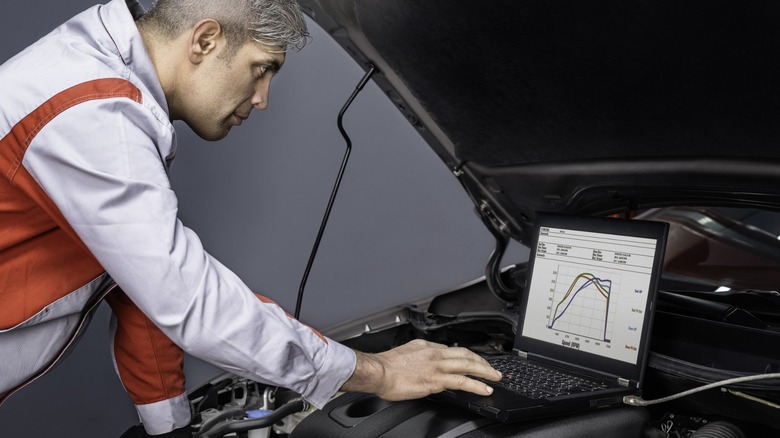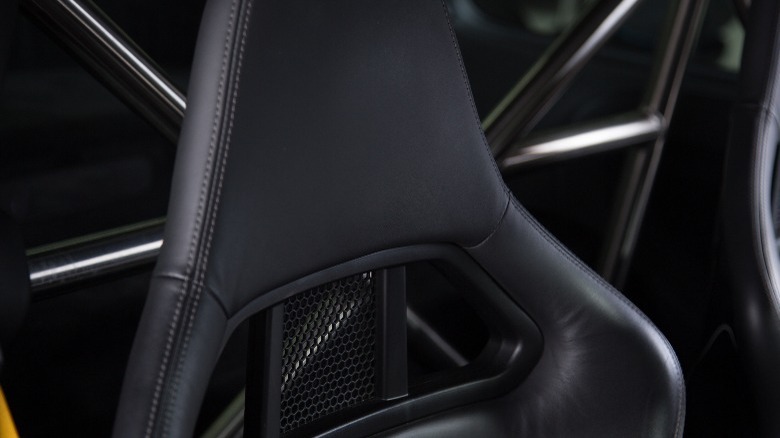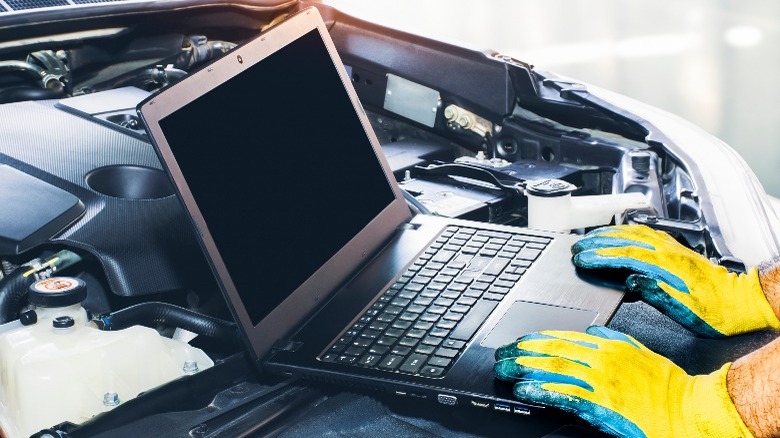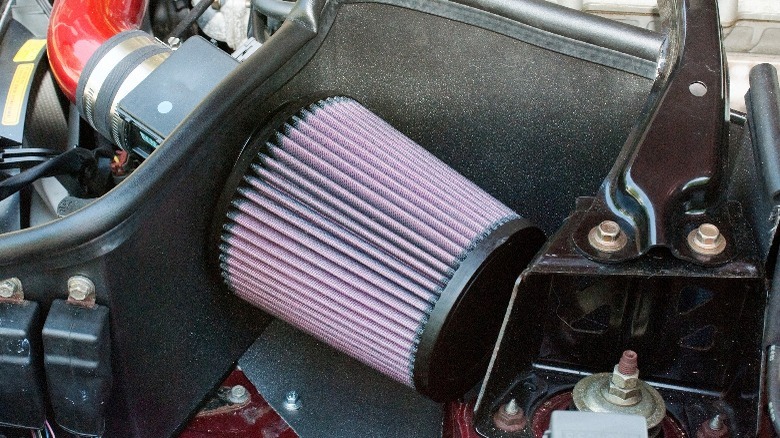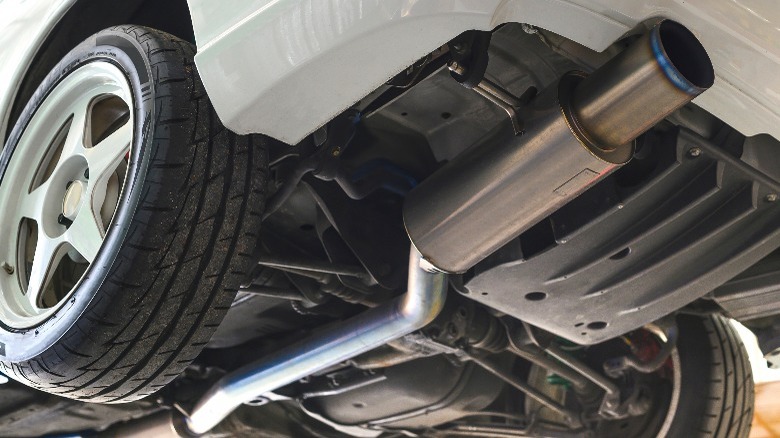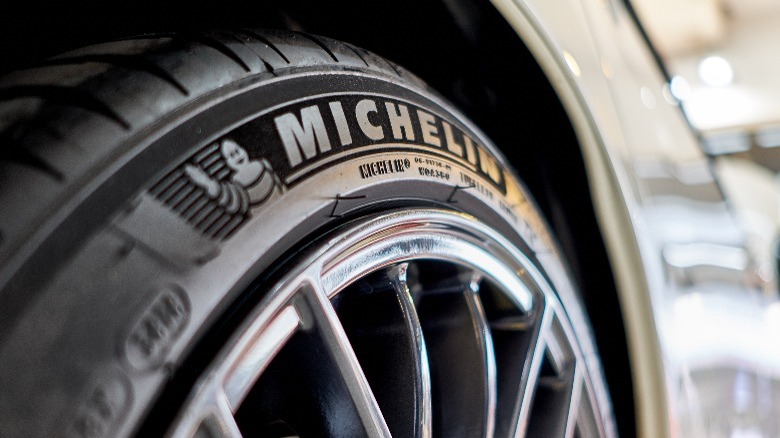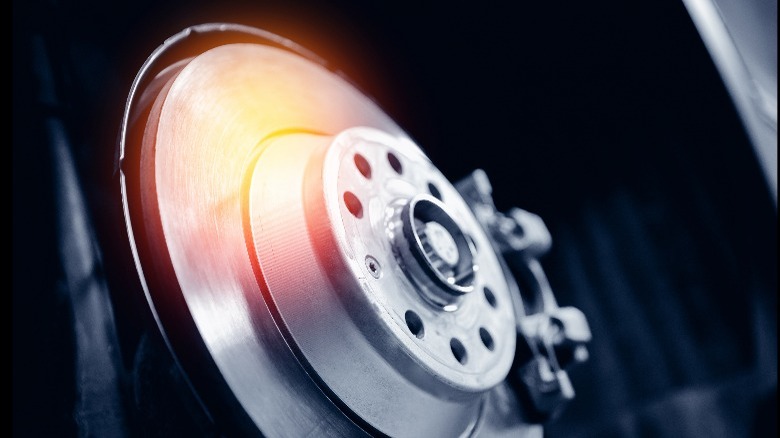6 Of The Most Affordable Ways To Boost Your Car's Performance
For the majority, automobiles are just means of transportation that get you from point A to point B. However, car enthusiasts know there's much more to the driving experience than just reaching a destination. The thrill of the ride, the acceleration, the feedback you get from the steering, and having a machine perform at its peak are only some of the reasons many fall in love with a car.
Not everyone has the luxury to spend six figures on a factory-made performance car. Moreover, the thrill of enhancing your car according to your own needs and desires can pay off more in the end. If you're new to the world of car modifications, choosing the right upgrades that offer the best value for money can be tricky.
Sure, there are expensive ways, such as swapping the stock engine with an LS motor, that you can increase your car's power output to a great extent. However, you might be surprised to find easy mods that boost performance without drilling a hole in your pocket.
Reduce weight
Arguably, the quickest and most affordable way to make your car faster and more responsive is to reduce weight. Weight reduction can be done in two ways: removing parts or replacing components with lighter alternatives.
You probably have some unnecessary items inside your car's trunk that you can remove. Some might go as far as doing away with the backseats, headrests, and floor mats. While they do help, it's probably not optimal to strip down everything from your car if it's your daily driver.
Moreover, you can opt for lighter parts to replace stock components in your car. Rebuilding the hood and fenders out of lightweight materials, such as carbon fiber, can be expensive but definitely an option. On the other hand, you can spend $500 or less on getting bucket seats for your car. Besides reducing weight, bucket seats help you stay firmly in your place when moving through tight corners on a track.
Another way to reduce weight is to swap your factory wheels with lighter aftermarket models. Again, getting two pairs of carbon-fiber wheels can cost you a lot. A more affordable alternative would be wheels made out of lightweight alloys.
Remap the engine
Almost all cars from the 2000s onwards have an engine control unit (ECU) that takes readings from various sensors from the powertrain to determine how much fuel and air goes into the cylinders. The factory settings for ECUs usually don't allow your car to unleash its full potential. Automakers do this to ensure the engine lasts longer in all driving conditions, even with substandard fuel.
By remapping the engine's ECU (also known as chip tuning), you can lift some of these compromises, which allow your car to put out more horsepower and torque. At more basic levels, ECU remapping costs around $200 to $500, though it can go up to $2,000 if your engine is heavily modified and you want to get the best performance possible out of it.
Remapping the ECU will change various powertrain components, such as fuel injectors, ignition timing, and turbo boost, to increase performance. Bear in mind that altering the ECU can directly affect your car's fuel consumption and emission rates.
Moreover, over-tuning a car's chip can increase wear and tear on multiple components. If you decide to remap your engine's ECU, you must put more effort into maintaining your car and use high-quality parts, oil, and fuel to ensure your engine does not face any serious problems.
Upgrade the air intake system
Your car needs oxygen as much as it needs fuel to run. One of the easiest ways to boost a car's performance is by upgrading the air intake system to let your car breathe better. Air filters in most cars are made out of paper as standard. While they do a good job at preventing dust and debris from entering your engine, paper air filters are not optimal for performance.
Opting for aftermarket models made out of more expensive materials, such as oiled foam or cotton, can increase the airflow in your engine and result in a boost in horsepower. Moreover, while paper air filters need to be replaced regularly, performance-oriented air filters can last you a lifetime with proper care and maintenance. You can find aftermarket air filters for less than $100.
Another way to significantly boost horsepower is installing a cold air intake system. The air around the engine tends to get hot. A cold air intake system allows cooler air to flow into the cylinders. Cooler air is denser and, therefore, contains more oxygen.
Besides increasing the engine output, installing a cold air intake will improve your car's gas mileage, allowing for less frequent trips to the gas station. So, although getting a cold air intake system can cost anywhere between $70 to $500, it's one of the most cost-effective methods for increased horsepower in the long run.
Install a performance exhaust
Installing a better exhaust ensures you get the most out of your investment in a cold air intake system. However, not all aftermarket exhaust systems offer a performance boost. "Bolt-on" exhausts usually serve as cosmetic upgrades and increase the engine sound.
A gasoline particulate filter (GPF-back) exhaust system, on the other hand, allows your engine to rev better by replacing some of the pipework and silencers throughout your exhaust system. You can also opt for a CAT-back exhaust, which does a similar job and allows the engine's exhaust gas to flow more freely.
If you don't want your neighbors to hate you, you can opt for an exhaust kit that features a resonator. An exhaust resonator cancels out certain frequencies to make the car generally quieter at idle and low RPMs. A resonator allows you to have the car sound and behave normally on daily commutes while sounding lively when you want to rev your engine up and have some fun. Exhaust kits can be more expensive than other items on this list, but they're worth every penny.
Get performance tires
Tires connect your car to the tarmac, and their importance in performance and driving experience cannot be neglected. The tires you choose for your ride directly affect handling and steering responsiveness. Among major tire-manufacturing brands, Michelin and Bridgestone stand out as reputable brands with a proven history of providing high-quality tires.
Most performance tires feature a soft rubber compound that makes them stickier than regular tires. The stickiness in such tires gives your car a better grip on the tarmac, which helps a lot during tight corners. Moreover, larger contact patches increase the surface area, which enhances traction, stability, and acceleration.
Since performance tires are softer, they don't hold up to your typical all-season tires in terms of longevity. However, they can handle aggressive driving much better. So, you can more confidently cut through sharp corners, floor the pedal, or aggressively decelerate your vehicle for a full stop. A pair of performance tires can start around $600–800, though that depends on the model and your rim dimensions.
Install better brakes
Performance isn't just about straight-line acceleration. Being able to quickly — and reliably — slow down your car will grant it a massive advantage in corners and, subsequently, faster lap times. Where others start braking yards ahead of a tight corner, you can accelerate until the apex, thanks to your better brakes.
If you're looking to get the best lap times possible, you're going to be braking hard. All that friction will heat up the brake rotors, and hot brakes tend to slip and lose braking power. A performance brake pad is engineered with special compounds that dissipate heat much faster, making your brakes more reliable.
For the ultimate upgrade, you need to swap every part between the brake pedal and the rotors. That means the master cylinder, brake lines, calipers, rotors, and pads. A good starting point is installing an upgraded brake kit, which includes rotors, calipers, and pads. You can get your hands on a performance brake kit from the likes of Brembo for $2,000. However, you could start your upgrade with something smaller, like replacing your brake pads with performance ones.
